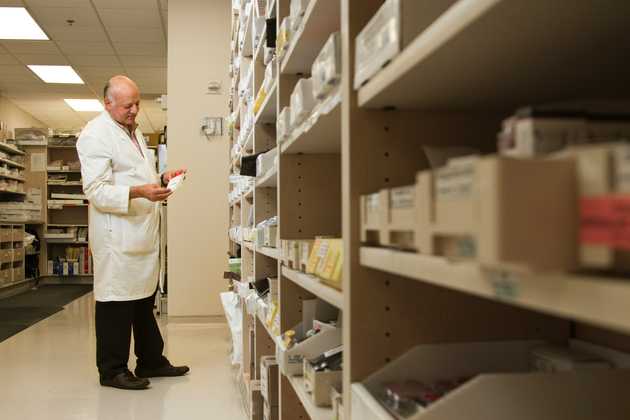Blockchain technology is best known for its use in cryptocurrencies like Bitcoin, but its potential applications extend far beyond finance. In the healthcare industry, blockchain is being explored as a way to securely store and share patient data, streamline supply chain management, and improve clinical trial transparency.
One of the key benefits of blockchain in healthcare is its ability to provide secure and decentralized storage for patient data. By using a distributed ledger system, patient data can be stored across a network of computers rather than in a centralized database. This makes it much harder for hackers to access or tamper with patient data, and gives patients more control over who has access to their information.
Another area where blockchain is being explored in healthcare is supply chain management. The pharmaceutical supply chain is complex and often opaque, making it difficult to track drugs from manufacturer to patient. Blockchain can provide a secure and transparent way to track drugs throughout the supply chain, from raw materials to the pharmacy shelf. This can help to prevent counterfeit drugs from entering the supply chain and ensure that patients receive safe and effective treatments.
Blockchain is also being explored as a way to improve clinical trial transparency. Clinical trials are a critical step in the development of new drugs and therapies, but they can be subject to bias and fraud. By using blockchain to record and verify clinical trial data, researchers can ensure that the data is accurate and unbiased. This can help to improve the reliability of clinical trial results and speed up the development of new treatments.
Despite the many potential benefits of blockchain in healthcare, there are also significant challenges to be overcome. One of the biggest challenges is the need for standardization and interoperability. There are many different blockchain platforms and protocols, and it can be difficult to ensure that they work together seamlessly. This can make it difficult to implement blockchain solutions on a large scale.
Another challenge is the need for education and awareness. Blockchain is still a relatively new technology, and many healthcare professionals are not familiar with its potential applications. It will be important to educate healthcare professionals about the benefits of blockchain and how it can be used to improve patient care.
In conclusion, blockchain technology has the potential to revolutionize healthcare, from securely storing patient data to streamlining supply chain management and improving clinical trial transparency. While there are significant challenges to be overcome, the opportunities for innovation and improvement are immense. As blockchain technology continues to evolve, it will be exciting to see how it is used to transform the healthcare industry.
Sources:


